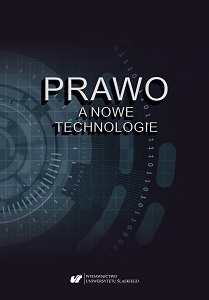Czy Frankenstein i Sophia będą płacić podatki?
Will Frankenstein and Sophia pay taxes?
Author(s): Mirosława Zajcew-Szwaj
Subject(s): Law, Constitution, Jurisprudence
Published by: Wydawnictwo Uniwersytetu Śląskiego
Keywords: robot; taxes;automation;
Summary/Abstract: The title question is not a quote from a fantasy novel, but a real problem that has been of interest also to lawyers. During a forum Future Investment Initiative, Sophia ‒ the humanoid robot created by Hanson Robotics ‒ had delivered such a successful speech that it was granted the citizenship of Saudi Arabia. Another example here can be Ross, an “employee” of the US law firm BakerHostetler that is an intelligent software operating on the IBM supercomputer Watson. Ross can predict the probability associated with insolvency law issues with an accuracy of 88.6%, while the best result obtained by human lawyers is 66.3%. In turn, Frankenstein referred to in the title was mentioned in the Resolution of the European Parliament of 16 February 2017 (2015/2103 (INL)), as a contribution to the debate on the development of robotics and artificial intelligence. The debate concerned issues related to the scope of regulation in criminal, civil, and tax law for artificial intelligence. It seems necessary to develop a proper legal regulation that would enable protection of people’s interests in connection with the dynamic development of robotics and artificial intelligence. Moreover, what has to be determined is how the risks associated with taking robots from people can be minimized. One of the solutions can be appropriate taxation of robot work. But what kind of taxes for robots will be the most effective? The same as for people, flat, or maybe progressive? In this article, I try to answer these questions and outline the consequences of these changes in order to eliminate the negatives, and to show the positive opportunities that are associated with taxation of robots and artificial intelligence. The legislator will surely be forced to adapt the existing legislation to the rapid development of technology.
Book: Prawo a nowe technologie
- Page Range: 37-42
- Page Count: 6
- Publication Year: 2019
- Language: Polish
- Content File-PDF

